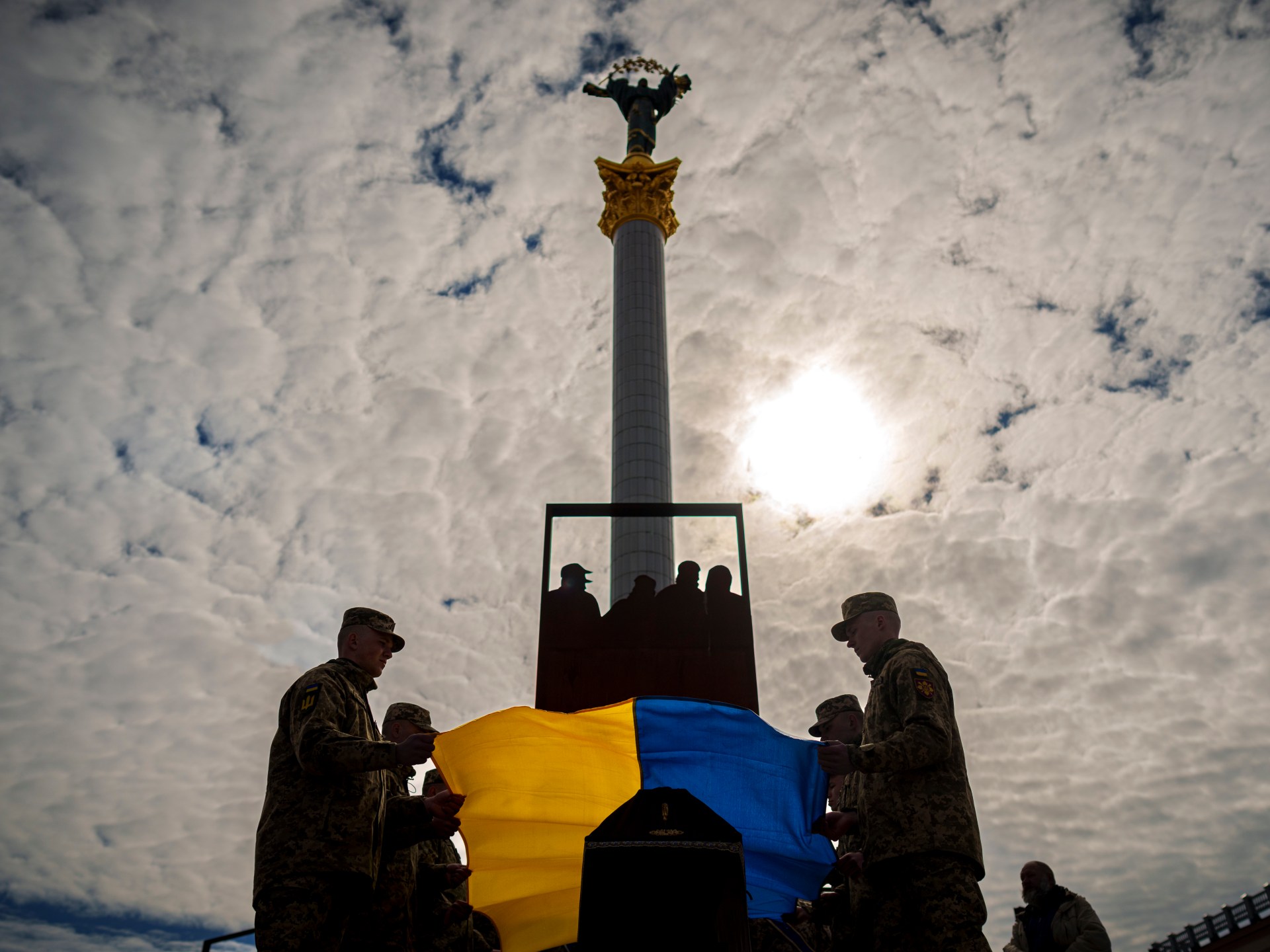
Russia’s war on Ukraine forces Europe to weaponise its economic might
Al Jazeera
Ukraine experts say Kyiv’s refusal to buckle under Moscow’s war represents a transformative moment for the continent.
Whatever the exact territorial outcome of the war in Ukraine, the political outcome is already clear – Russia has lost its gambit to create a vassal state and buffer zone in Eastern Europe, because Ukraine’s Westward course is now irreversible.
That was one of the key messages of an international symposium of diplomats and academics who gathered at Cambridge University under the auspices of the Centre for Geopolitics on Thursday, April 4. The focus was the Maidan Revolution of 2013, which overthrew Ukraine’s Moscow-friendly president Viktor Yanukovych and set the country on a path towards Europe, but it also dwelled on Russian President Vladimir Putin’s full-scale invasion of the country in February 2022.
“Putin has lost Ukraine. It has become crystal clear. He has invaded their sovereignty and they have resisted him,” said Baroness Catherine Ashton, who was the European Union’s first foreign policy chief between 2009 and 2014, and held frequent talks with Yanukovych and Putin during the turbulent months of the uprising. “All those years before he was losing them, and now he’s lost them completely.”
The Maidan protests started on the evening of November 21, 2013, when Yanukovych decided not to sign an association agreement with the European Union, which had been under negotiation for seven years, opting instead for a free trade deal with Moscow.
“I remember that evening very well,” said Argita Daudze, Latvia’s ambassador to Ukraine at the time, who was hosting a reception that day. “Ukrainian foreign ministry officials joined us late and they were in a very bad mood.”
